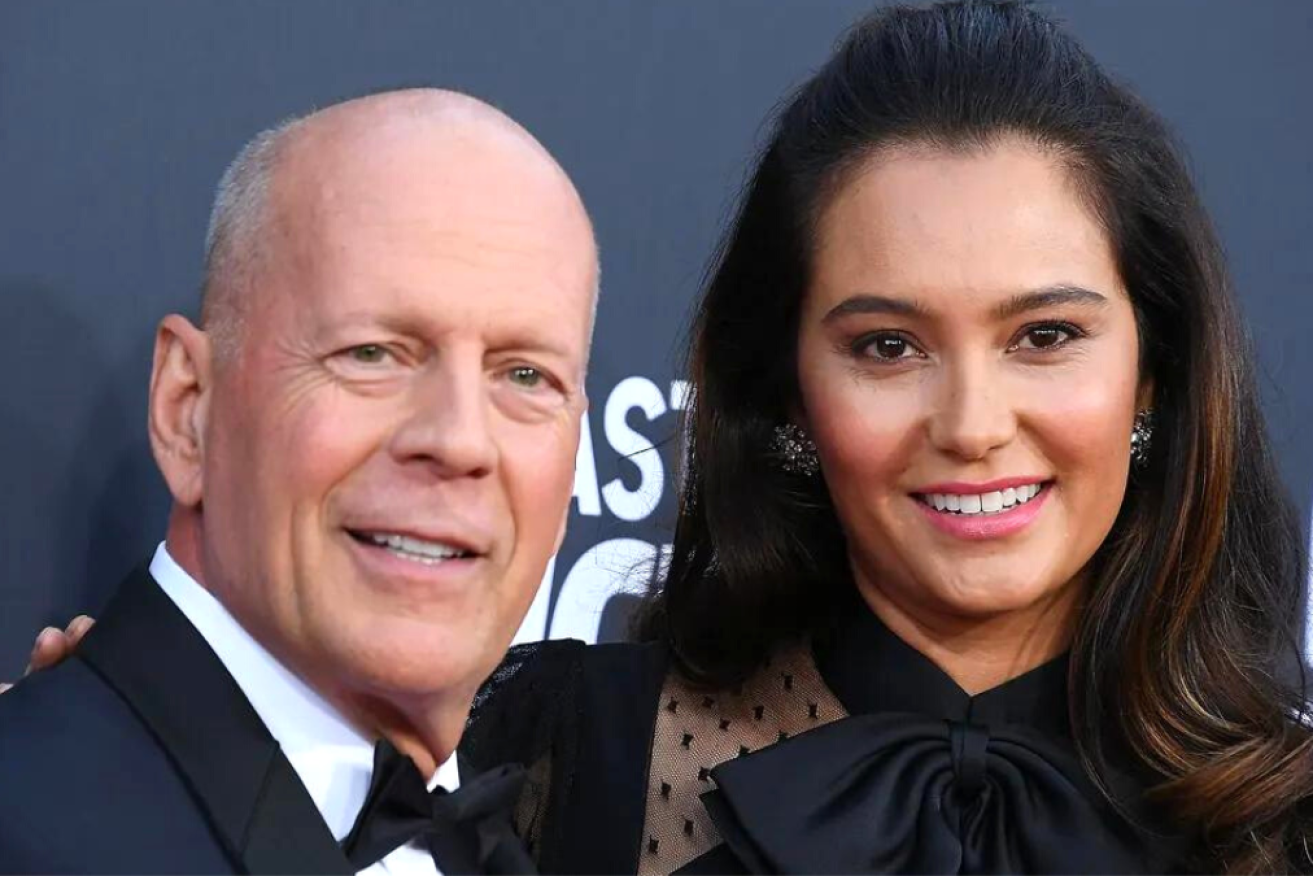Madonna King: Bruce Willis plea highlights what we should keep in mind about dementia


Bruce Willis' wife says she wants to debunk false narratives about how her husband is living with with frontotemporal dementia. Photo: Getty
In Die Hard, Bruce Willis is the tough, 1.83-metre NYPD copper who battles a gang of merciless terrorists inside a towering Los Angeles skyscraper.
He’s unassailable. Fit as a fiddle. Invincible. He’s John McClane, and he’s able to rescue hostages at a Christmas Eve party, while on vacation.
Die Hard was a monster hit, demanding two sequels; part of a bank of 100 films Willis appeared in, which grossed more than $3.8 billion.
But it is Willis’ most recent diagnosis that should garner even more interest, and create a script that gifts a better life to many in his global fan base; a story line where his diagnosis of fronto-temporal dementia, or FTD, drives a new narrative around research and funding, and awareness and empathy.
It was the latter of those – empathy – that his wife Emma Heming Willis was crying out for when she pleaded with the public and paparazzi recently to leave Bruce alone, and allow him to feel safe.
Becoming an epidemic
Emma Heming Willis is not the first partner and carer to make that plea about a disease like dementia – which someone in the world now develops every three seconds. But her husband’s fame might be the trigger for a change in how we see a health challenge that is quickly becoming an epidemic.
“Bruce always believed in using his voice in the world to help others, and to raise awareness about important issues both publicly and privately,’’ Emma, Bruce’s ex-wife Demi Moore, and family said in a statement.
“We know in our hearts that – if he could today – he would want to respond by bringing global attention and a connectedness with those who are also dealing with this debilitating disease and how it impacts so many individuals and their families.’’
This story is not a Hollywood plot. In Australia, almost 500,000 people are living with dementia. And our knowledge around it is usually only built by dealing with someone who is suffering and close to us.
That’s why such ignorance still sits around dementia and why it continues to be underfunded, when compared to other challenges of a similar nature.
Indeed, it might be only when the nation’s baby boomers climb into old age that we see the problem as glaringly visible. Emma Heming Willis’s plea is that we see it now.
FTD is the most common form of dementia for those aged under 60, but dementia is not a single disease. Dementia Australia explains it as a “collection of symptoms caused by disorders affecting the brain’’.
Role of dementia
Willis’s diagnosis is an opportunity for us to talk about it, and perhaps view the role dementia is playing in our communities differently.
We have, in recent years, come to genuinely value the role diversity plays in our workplaces and schools, friendship groups and communities. That includes all sorts of diversity– race, gender, and neurodiversity.
We’re understanding each of them more, and changing as a society to recognise the strength each of them bring to decision making. Should dementia be seen in a similar light?
Although we might ask that question of ourselves, we should be asking government about funding targeting dementia. Does it really get the slice of the pie it deserves, up against other health challenges like cancer and obesity and heart disease?
That’s crucial because funding cancer research and the public campaigns around breast cancer, for example, has led to greater understanding and significantly-improved survival rates. Cancer is no longer the death sentence it might have been in previous generations.
Heart disease is the same. We know the causes and symptoms and lifestyle changes that might protect us. And we’ve seen huge inroads in public understanding – on the back of organisations like the Heart Foundation – around cardiac issues.
The problem with dementia is that it is difficult for us to see it in the same way. It’s not about survival rates, so much, as how we treat someone who might be suffering, and those who care for them.
That was the simple point being made by Emma Heming Willis. And one that is well worth pondering.
National Dementia Helpline 1800 100 500








